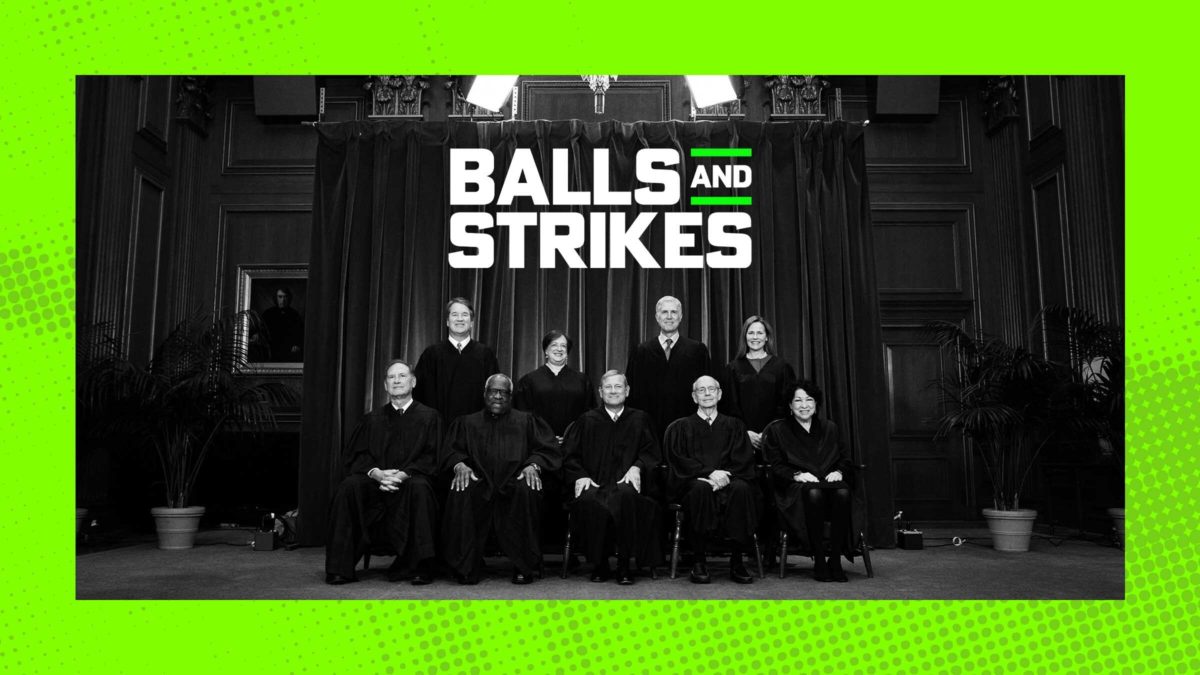By next summer, the Supreme Court will decide Merrill v. Milligan, a racial gerrymandering case out of Alabama that gives this six-justice conservative supermajority its latest chance to hack away at the Voting Rights Act. A win for Alabama in Merrill would make it functionally impossible for voters to win challenges to discriminatory legislative maps, further reducing the crown jewel of the Civil Rights Movement to an aspirational nullity.
As Chief Justice John Roberts and his colleagues ponder exactly how much more damage they’re going to do to the already-threadbare fabric of American democracy, the Washington Post Editorial Board has a simple question: What if they didn’t?
In a recent editorial entitled “The Roberts Court should end its assault on the Voting Rights Act,” the Board situates Merrill in the context of the Court’s other anti-democratic handiwork: 2013’s Shelby County v. Holder, authored by Roberts, which hollowed out one of the VRA’s most important enforcement mechanisms, and 2021’s Brnovich v. DNC, authored by Justice Samuel Alito, which hollowed out the other one. A similar outcome in Merrill, the Board warns, would entail “potentially dire consequences for minority voters’ ability to elect candidates who represent them,” and “undermine…the meaningful participation of all Americans in the democratic system.”
I agree with this characterization of the Court’s record on voting rights, which is to say that I agree that the Court does not care about voting rights. But I genuinely have no idea what the call to action here—requesting that the Republican Supreme Court justices stop doing the thing they’ve been doing for decades—is supposed to accomplish. As I’ve written elsewhere, the steady, unflinching rollback of voting rights is the Roberts Court’s most important accomplishment, because every other item on the Republican Party agenda depends on this mission’s success. Appealing to this Court to leave democracy alone is like suggesting that the great white sharks in Jaws stop eating people: Yes, sure, but a backup plan is probably in order, just in case “asking nicely” doesn’t work out!
The Post Board’s take here is especially baffling in light of its stubborn position on a related issue: Its steadfast opposition to the prospect of adding justices to the Supreme Court. For anyone who cares about the bleak future of voting rights, expansion is the one Court reform proposal that would make an immediate difference. Four (or more!) new justices appointed by President Joe Biden and confirmed by a Democratic Senate would instantly turn Sam Alito’s brain-dead amateur history lessons into feckless dissents.
The Post’s Editorial Board, however, has spent the past several years variously characterizing Court expansion as a “historic mistake” that would do “more harm than good.” Thus, in its analysis of the stakes of Merrill, the Board finds itself in the deeply weird position of trying to come up with fixes for a hard problem having already rejected the punch-you-in-the-face obvious solution out of hand. The result is this milquetoast, wishcasting plea for compromise to life-tenured federal judges who have neither obligation nor incentive to listen to it.
You cannot shame the Republican Party into caring about voting rights, because all their hard work to seize control of the federal judiciary has been building to this moment. They held open Antonin Scalia’s seat for nearly a year to prevent President Barack Obama from creating the Court’s first liberal majority in decades. Two years later, they stuck by Brett Kavanaugh, one of the weakest Supreme Court nominees in recent memory, to create a solid conservative majority. Two years after that, they rammed Amy Coney Barrett’s nomination through the Senate just weeks before the presidential election in order to cement that majority even further. Conservatives have earned the right to not give a shit about what anyone else thinks, and for as long as liberals treat the Court’s size as sacrosanct, asking its current members to change course is not a plan to save democracy. It is a delusion.
As always, you can find us at ballsandstrikes.org, or follow us on Twitter @ballsstrikes, or get in touch via[email protected]. Thanks for reading.
This Week In Balls & Strikes
A Texas Judge Opens Court Each Day With a Christian “Mini-Sermon.” No Problem Says the Fifth Circuit!, Lisa Needham
First Amendment? Sounds neat! Never heard of it!
How a Supreme Court Case About Big Farms Could Shake Up the Fight For Abortion Access, Yvette Borja
The implications of National Pork Producers Council v. Ross extend far beyond conditions of farm animal confinement.
Civil Rights Always Yield to the American Legal System’s Bloodlust, Madiba Dennie
On the latest erosion of your increasingly-theoretical Sixth Amendment rights.
This Week In Other Stuff We Appreciated
This Is How to Put the Supreme Court In Its Place, Jamelle Bouie, The New York Times
Disputes over the Court’s power of judicial review are not new. Neither are efforts to curb it.
The Onion Is Right About the Future of Democracy, Nicole Hemmer, CNN
On the only good amicus brief in the history of the Supreme Court.
The Supreme Court Is Back In Session. What’s the Progressive Plan?, The New Republic
A conversation with Yale Law professor Amy Kapczynski about the future of the left legal project during the Roberts Court era.
This Week In Obscure Photos of Supreme Court Justices On Getty Images


